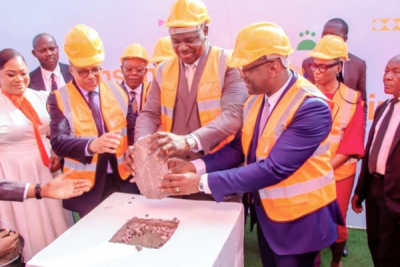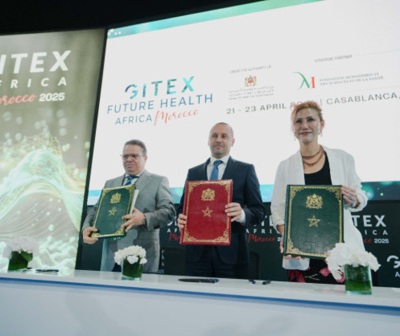On January 5, 2023, Algerian team SevenG won the second prize in the finals of the global competition organized by Huawei. It won the prize thanks to its AI tool that automates farming. At a time when food insecurity is hanging over millions of people all over the world, the seven students who launched the tool believe that it is an efficient and less restrictive solution to make farming more profitable. In an interview with We Are Tech, they present their ambitious project.
What inspired you to launch FarmAI?
We were inspired by the food insecurity affecting Algeria and several countries in the world. We decided to develop an IT system, combined with other tools, which would help create a smart farm, monitor crops, identify pests, build a smart irrigation system, and monitor weather changes. The main idea is to quickly detect and efficiently respond to diseases affecting farms.
How does your solution work?
The early wheat rust disease detection system combines artificial intelligence and drones to monitor wheat fields. The drone flies around the field every 4 days, capturing images of the plants with its camera. This data is then transferred to a deep neural network that performs image classification and analysis to identify possible infections. If a set of data points at a high infection probability, the system will alert the farmer through a mobile app and backend system, allowing the farmer to take the necessary actions to preserve crops and avoid financial losses.
We already have audiences with the Ministries of Economy and Agriculture. They will help us either partner with local drone manufacturers or purchase our drones. In both cases, the great support offered by the President of the Republic to agritech and startups is a real opportunity.
Why did you choose artificial intelligence to power your solution?
We didn't choose to use artificial intelligence (AI) because it's a trendy technology or something like that, but our problem requires a lot of effort, time, and money. So, as we all know, AI improves the speed, accuracy, and efficiency of human actions. Those are the reasons we chose AI for our FarmAI project. At this stage, we are using AI in two key functions which are computer vision and the automation of drones that monitor farms, process images and classify them.
Given the potential of artificial intelligence, why limit the solution to the identification of wheat rust only?
At the beginning of the Tech4good competition, our idea was to develop a system that would help reduce losses in farms and ensure food security in our country. But, as we were time-limited and our project was focused on a specific feature, which is the detection of rust disease, even before the competition, our mentors advised us to pursue this feature. Nevertheless, we plan to add other features, including pest detection and the detection of other diseases. We plan to deploy our solution in more farms.
Our focus on wheat rust stems from the position of wheat in the Algerian economy. Algerians consume more than 100 kilograms of wheat yearly. The country produces and exports the commodity, which is a great source of income for households and the whole country. Our solution helps address food and economic issues not only in Algeria but also in the whole world.
What are SevenG's plans for FarmAi after Tech4Good?
The next step is to test our solution. We have already spoken with farmers and most of them are interested. The solution has been developed in such a way that it is easy to use even for non -tech-savvy individuals. Since most farmers are already using smartphones, they only have to check the reports since everything that has to do with drone calibration, launch, and data analysis is automated.
Once we are done with the testing phase, we will offer free trials to farmers to convince them of the usefulness of our solution. Then, we will seek investors to quickly develop our business and get more clients.



















